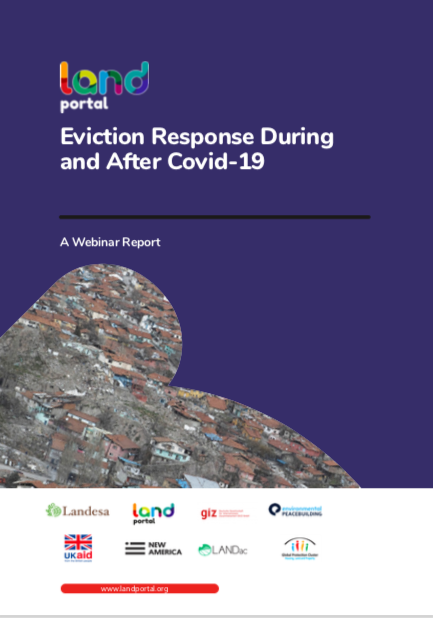Resource information
Evictions have emerged as the most common housing, land and property risk globally associated with the COVID-19 pandemic in spite of the fact that access to adequate housing is essential to reduce the spread of the virus. This arises due to a combination of factors, the main one being the suspension and loss of livelihoods on a massive scale resulting from public health prescriptions resulting in an inability to pay rent. Opportunistic actors (governments, armed groups, and landlords) may also use this crisis to evict people from houses, camps and informal settlements. Lastly, evictions are also a major risk for public health workers and others who risk exposure as a result of their professions, people who have been infected by the disease, and other marginalized populations due to stigma and fear.Even in non-pandemic times, evictions are humanitarian crises – with lasting effects on the health, well- being, education, and livelihoods of not only those who have been evicted, but communities as a whole.
Not all governments have enacted measures to secure housing tenure for tenants and occupants of camps and informal settlements in response to this crisis. Among those jurisdictions who have put in measures, most have moved to enact moratoriums on eviction and utilities shut-offs, and a minority have put in measures to reduce rents or offer rental subsidies to the most vulnerable households. However even these measures will expire in the coming weeks and months even when economies have not fully “reopened” and livelihoods revived, leaving renters with several months worth of unpaid rent. Being able to respond to this emerging crisis will require practitioners, donors, activists and policy makers to deploy all of the tools and best practices they have at their disposal in order to address the massive, unprecedented need.
As such, this webinar convened some leading thinkers on eviction, and ask them to draw on their experiences to help orient our collective thinking on how to respond to this crisis during COVID-19 and in the months and years after when its effects will continue to linger.

